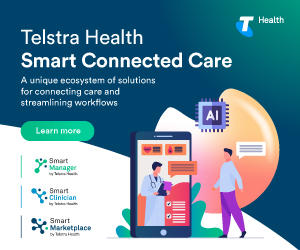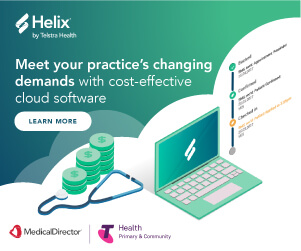5 Ways cloud supports better healthcare
Cloud computing is playing an increasingly critical role in transforming health care’s digital ecosystem, and the benefits are becoming more evident than ever before.
A recent report, Healthcare Cloud Computing: Global Markets to 2022, predicts the global market for healthcare cloud computing to grow at a compound annual growth rate of 11.6% from 2017 through 2022, to reach $35.0 billion by 2022. This exponential growth is linked to cloud-based solutions allowing faster access from anywhere, and any device, while offering better diagnostic quality and instant online access to patient images and reports.
And as healthcare providers look to maximise efficiency and meet the demands of value-based care, the cloud will continue to be embraced exponentially. With the benefits of improved security and interoperability, cloud enables considerable opportunities for cross-platform integration, as well as leveraging deeper data and insights to enable more efficient and accurate delivery of care in real-time.
Greater consolidation and less fragmented ecosystem
A cloud-based healthcare ecosystem offers more effective integration and storage of volumes of patient data and information, while helping to orchestrate fragmented information across multiple systems and sites of care. In fact, according to a Kaufman Hall report, healthcare consolidation hit an all-time high in 2017, with 115 deals totaling $63.2 billion.
Interoperability, collaboration and improved patient outcomes
Cloud-based solutions support collaboration in healthcare, allowing multiple stakeholders to share information securely and seamlessly across the network. MedicalDirector’s recent whitepaper, Interoperability in healthcare: Synergising an industry, found a significant benefit of moving towards cloud-based solutions is that it support more interoperable systems, which in turn benefits coordinated care and improved patient outcomes.
Flexible workflow solutions and better patient outcomes
MedicalDirector’s report further revealed cloud-based health solutions provides the digital infrastructure needed to effectively coordinate more flexible patient-centric care. When it comes to the cloud, 64% of respondents admitted they consider flexibility to be the main benefit of using a cloud-based HER/PMS systems. enhancing the workflow capabilities of care teams and improving the patient experience.
Moving away from legacy, on-premises solutions and into the cloud will enable hospitals and health systems to improve workflow and efficiency, which will in turn enable healthcare providers to focus more closely on providing value-based care, improve the patient experience and achieve better clinical and hospital outcomes.
Security and compliance
With tougher cyber security laws now in full force, the pressure is on the healthcare industry to take security and compliance seriously.
Cloud-based applications like Helix, which is built on the robust market leading Microsoft Azure platform, are becoming far more secure and sophisticated than on-premises legacy solutions. This is because cloud service providers must ensure data is encrypted, backed up, easily recoverable and secured with strict role-based access. It is also prudent to note that while cloud solution providers implement their security measures, healthcare organisations must ensure they have the right security architecture in place to keep sensitive data safe.
Deeper data insights for better informed decisions
Cloud computing can process vast amounts of structured and unstructured data, which healthcare providers and stakeholders can leverage to gain deeper, more meaningful insights. This in turn can help drive better, more accurate and informed decisions and improve patient engagement and outcomes.









